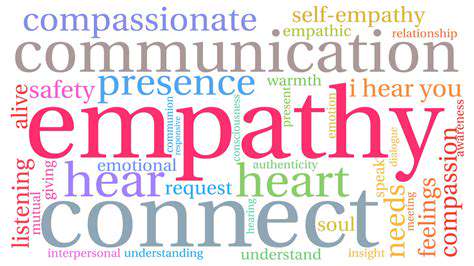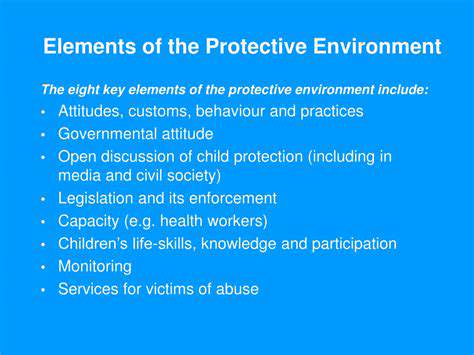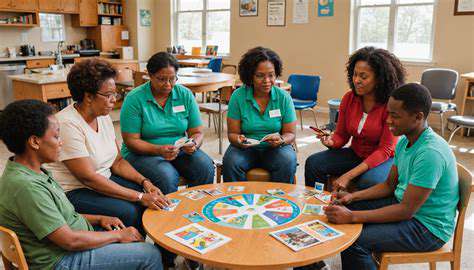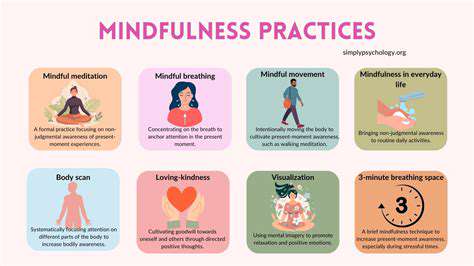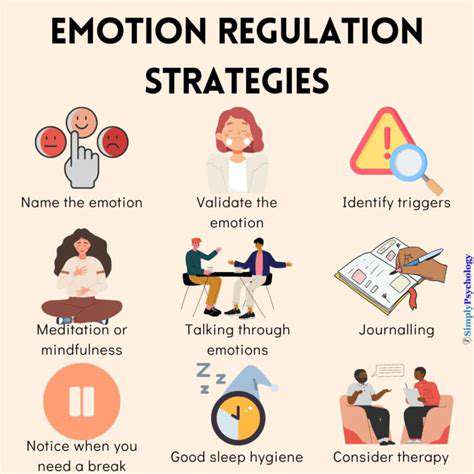Encouraging Healthy Eating Habits: Beyond the Basics
The Power of Habit Formation and Mindfulness
Understanding Habit Formation
Habit formation is a complex process deeply intertwined with our brains' reward systems. Repeated actions, paired with positive reinforcement, create neural pathways that become automatic. Understanding how habits are formed is crucial for cultivating healthy eating habits, as it allows us to identify and address the underlying triggers and rewards associated with less-than-ideal food choices. This knowledge empowers us to consciously reshape these patterns, gradually replacing unhealthy habits with healthier alternatives.
One key aspect of habit formation involves understanding the habit loop. This loop encompasses a cue (a trigger), a routine (the action itself), and a reward (the positive feeling or satisfaction derived from the action). Identifying these components for both positive and negative eating habits provides valuable insight into how to modify them. For instance, recognizing that a craving for sugary snacks is often triggered by stress (the cue) and satisfied by the immediate pleasure of eating (the reward) allows for targeted interventions. This understanding is fundamental to replacing the craving with a healthier response.
Mindfulness and Conscious Eating
Mindfulness plays a vital role in fostering healthier eating habits by encouraging conscious awareness of our relationship with food. Practicing mindfulness involves paying attention to the present moment without judgment. When eating mindfully, we become more attuned to our body's hunger and fullness cues, allowing us to eat when genuinely hungry and stop when satisfied. This approach helps us avoid mindless eating, a common contributor to overconsumption and poor food choices.
By cultivating mindfulness during meals, we can observe our thoughts, emotions, and physical sensations related to eating. For example, noticing the texture, taste, and aroma of food can enhance our appreciation for the experience, fostering a more mindful and enjoyable relationship with food. This conscious awareness helps us break free from automatic eating patterns and fosters a healthier connection with our body's needs. This mindful approach can also help us identify emotional eating triggers and develop healthier coping mechanisms.
Strategies for Building Healthy Habits
Building new healthy eating habits requires a multifaceted approach. Combining mindful eating practices with practical strategies is key to long-term success. One crucial strategy is to establish clear goals and make gradual changes rather than aiming for drastic transformations overnight. Setting realistic and achievable goals, such as increasing the intake of fruits and vegetables, progressively replacing processed snacks with healthier options, or creating a weekly meal plan, can lead to sustainable improvements.
Another important strategy is to create a supportive environment. This could involve stocking your kitchen with healthy foods, preparing meals in advance, and enlisting the support of friends or family members who share your goals. Furthermore, seeking guidance from registered dietitians or nutritionists can provide personalized plans and support tailored to individual needs and preferences. This comprehensive approach, combining mindfulness, practical strategies, and support systems, is essential for cultivating lasting healthy eating habits and achieving optimal well-being.
Finally, consistency is key. Be patient with yourself, acknowledge setbacks as learning opportunities, and celebrate small victories along the way. Remember that building healthy habits is a journey, not a destination. By incorporating these strategies and maintaining a proactive mindset, you can successfully foster lasting healthy eating habits and experience the numerous benefits they offer.

